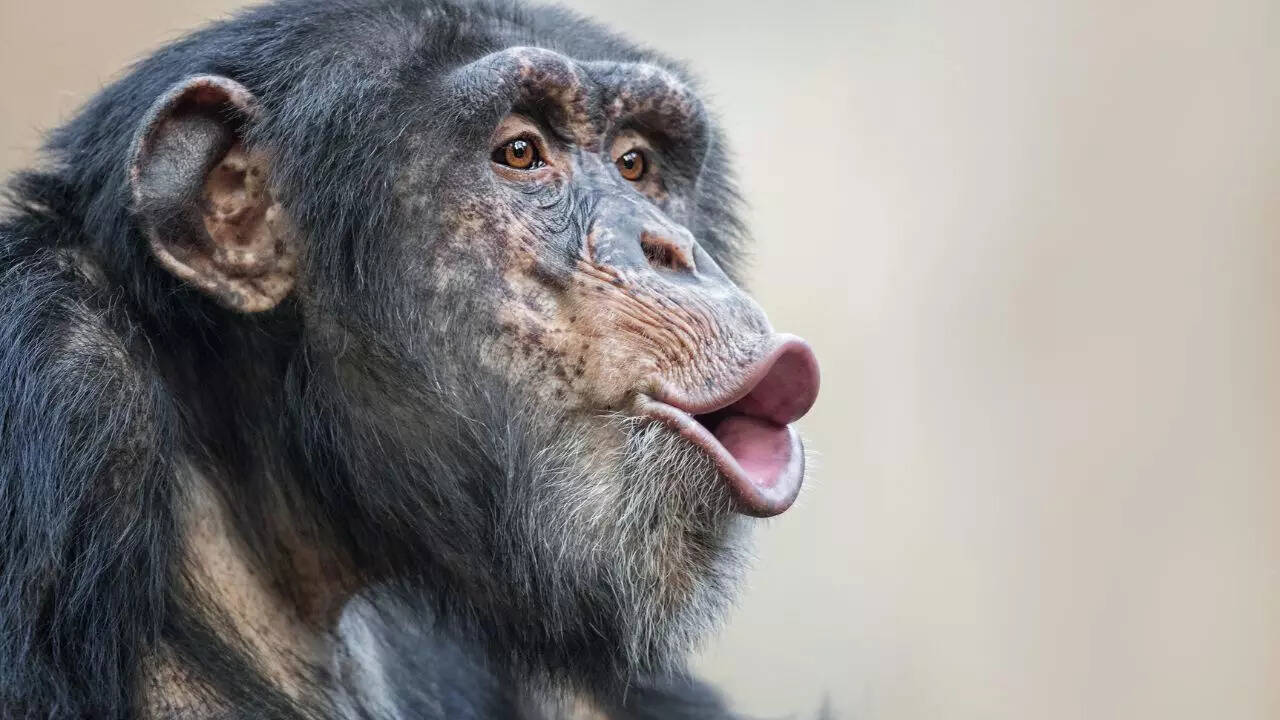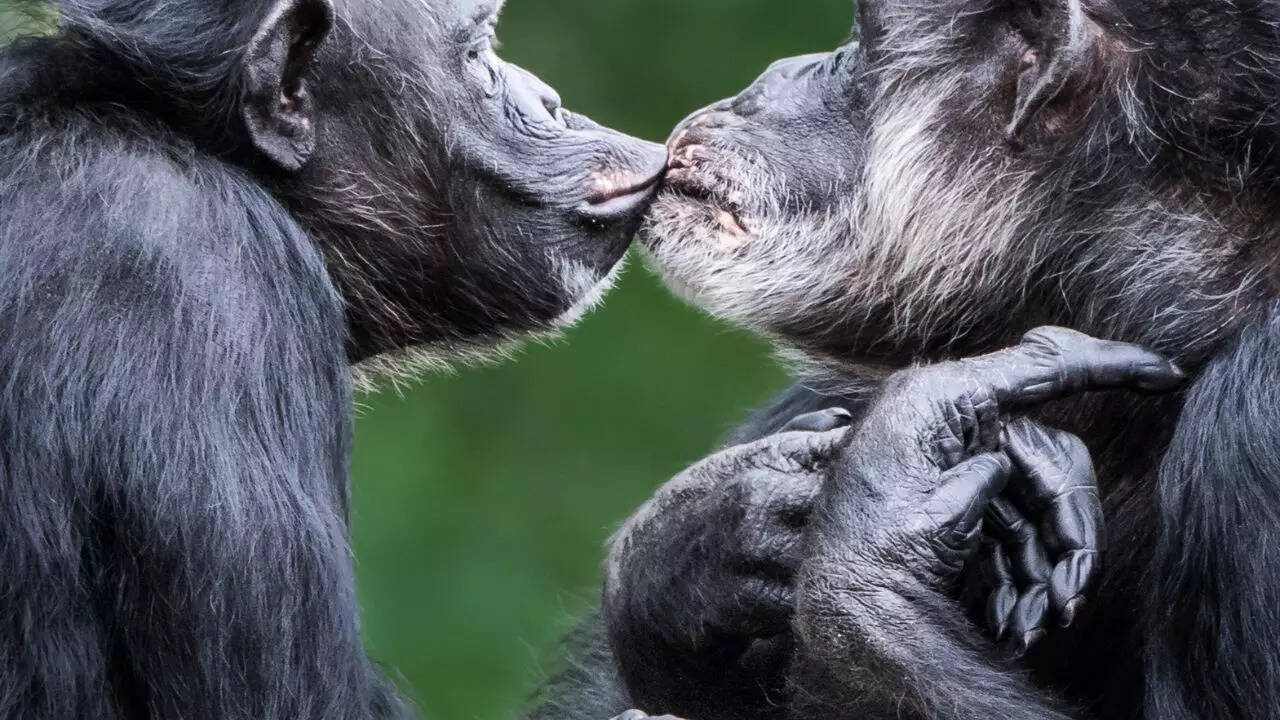 Picture this: you are a chimpanzee in the heart of Uganda’s forests, swinging from tree to tree in search of your favourite snack. But these are not just any fruits; they are fermented, naturally sugary, and packed with alcohol. While humans pay for cocktails, wild chimpanzees enjoy their own daily buzz straight from nature.A recent study published in Science Advances shows that chimpanzees regularly consume alcohol by feasting on fermented fruits, averaging 14 grams of ethanol per day, roughly equivalent to one standard drink for humans. Adjusted for body weight, this amounts to nearly two human-equivalent drinks. Remarkably, these primates show no signs of intoxication, likely because they sip slowly while foraging rather than guzzling all at once.This behaviour supports the drunken monkey hypothesis, which suggests that humans’ love for alcohol may have evolutionary roots. In this article, we explore how chimpanzees enjoy their fruity cocktails, what scientists discovered, and what it tells us about our own connection to alcohol.
Picture this: you are a chimpanzee in the heart of Uganda’s forests, swinging from tree to tree in search of your favourite snack. But these are not just any fruits; they are fermented, naturally sugary, and packed with alcohol. While humans pay for cocktails, wild chimpanzees enjoy their own daily buzz straight from nature.A recent study published in Science Advances shows that chimpanzees regularly consume alcohol by feasting on fermented fruits, averaging 14 grams of ethanol per day, roughly equivalent to one standard drink for humans. Adjusted for body weight, this amounts to nearly two human-equivalent drinks. Remarkably, these primates show no signs of intoxication, likely because they sip slowly while foraging rather than guzzling all at once.This behaviour supports the drunken monkey hypothesis, which suggests that humans’ love for alcohol may have evolutionary roots. In this article, we explore how chimpanzees enjoy their fruity cocktails, what scientists discovered, and what it tells us about our own connection to alcohol.
What the study revealed about chimpanzees and alcohol
 Researchers from the University of California, Berkeley, led by doctoral student Aleksey Maro, conducted fieldwork in Kibale National Park in Uganda and Taï National Park in the Ivory Coast. They collected over 500 fruit samples from 21 species regularly consumed by chimpanzees. The study revealed that:Chimpanzees eat approximately 4.5 kilograms of fruit dailyThe average ethanol content of these fruits was around 0.31 to 0.32 percent by weightDespite consuming alcohol daily, chimpanzees showed no signs of intoxication due to gradual consumption while foragingThis research provides the first direct evidence of wild chimpanzees’ daily alcohol intake and offers insights into the evolutionary origins of alcohol consumption in primates.
Researchers from the University of California, Berkeley, led by doctoral student Aleksey Maro, conducted fieldwork in Kibale National Park in Uganda and Taï National Park in the Ivory Coast. They collected over 500 fruit samples from 21 species regularly consumed by chimpanzees. The study revealed that:Chimpanzees eat approximately 4.5 kilograms of fruit dailyThe average ethanol content of these fruits was around 0.31 to 0.32 percent by weightDespite consuming alcohol daily, chimpanzees showed no signs of intoxication due to gradual consumption while foragingThis research provides the first direct evidence of wild chimpanzees’ daily alcohol intake and offers insights into the evolutionary origins of alcohol consumption in primates.
Why do chimpanzees consume fermented fruit
Chimpanzees are attracted to fermented fruits primarily for their high sugar content, which provides quick energy. Fermentation increases the caloric value of overripe fruits, making them even more appealing. The ethanol in these fruits is a byproduct of natural fermentation and does not deter chimpanzees from eating them. Preference for these fruits may be an adaptive behaviour that has persisted over generations, showing early examples of selective feeding and energy maximization in primates.
The drunken monkey hypothesis and primate alcohol behavior
 The drunken monkey hypothesis, proposed by UC Berkeley Professor Robert Dudley, suggests that humans’ attraction to alcohol may have evolved from primate ancestors who sought energy-rich fermented fruit. The recent chimpanzee study supports this idea, showing that consuming naturally fermented fruit is a behaviour present in wild primates. These findings provide a possible explanation for why humans developed an affinity for alcohol over evolutionary time. It also sheds light on our biological wiring, hinting that the roots of alcohol consumption may lie deep in our evolutionary past.
The drunken monkey hypothesis, proposed by UC Berkeley Professor Robert Dudley, suggests that humans’ attraction to alcohol may have evolved from primate ancestors who sought energy-rich fermented fruit. The recent chimpanzee study supports this idea, showing that consuming naturally fermented fruit is a behaviour present in wild primates. These findings provide a possible explanation for why humans developed an affinity for alcohol over evolutionary time. It also sheds light on our biological wiring, hinting that the roots of alcohol consumption may lie deep in our evolutionary past.
Implications for human alcohol consumption
Understanding chimpanzees’ daily alcohol intake offers insight into human alcohol consumption. The study indicates that alcohol consumption in humans might not be purely cultural but could have biological and evolutionary foundations. Observing how our closest living relatives interact with naturally fermented foods helps researchers trace the origins of human behaviour and alcohol preference. This evolutionary link suggests that our attraction to ethanol may stem from ancient survival strategies, such as locating calorie-rich, ripe, or fermented fruits in dense forest environments.
Conservation and ethical considerations for studying chimpanzees
While this research is fascinating, it is important to consider conservation and ethical responsibilities. Protecting chimpanzee habitats ensures their survival and well-being. Researchers also follow strict ethical protocols to minimize stress or harm to the animals during observation. Studying wild chimpanzees allows scientists to learn about behaviour and evolution while respecting and preserving these species for future generations.The discovery that chimpanzees regularly consume alcohol from fermented fruit highlights their complex behaviours and cognitive abilities. Their ability to locate, select, and consume overripe fruit shows not only intelligence but also adaptive feeding strategies. The similarities between chimpanzee and human alcohol consumption suggest that our own attraction to alcohol may be rooted in evolutionary history.By studying these behaviours responsibly, we gain a better understanding of primate evolution and our own human tendencies. Chimpanzees’ daily fruity buzz reminds us that nature often holds fascinating secrets that connect us to our closest relatives in unexpected ways.Also read| Desert lizards sneeze salt to survive: Why adaptation wins over thirst

